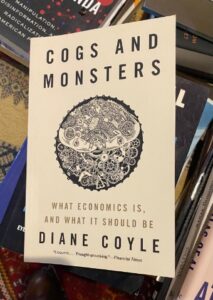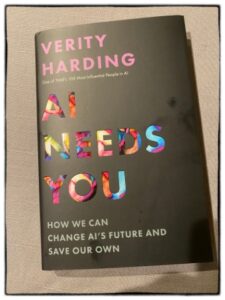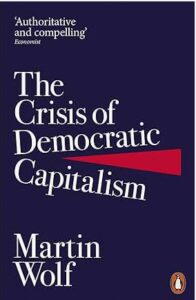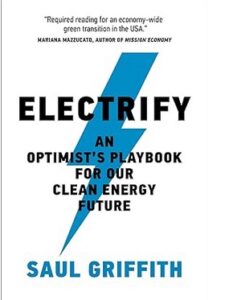Cue Wordsworth…

Quote of the Day
”If economists wished to study the horse, they wouldn’t go and look at horses. They’d sit in their studies and say to themselves, ‘What would I do if I were a horse?'”
- Ely Devons
Musical alternative to the morning’s radio news
Carly Simon | You’re So Vain
Long Read of the Day
How Piketty discovered politics
Transcript of a fascinating interview Gavin Jacobson conducted with the celebrated French economist, Thomas Piketty. I read Piketty’s Capital in the Twenty-First Century (as did 2.5 million other people) when it first came out, but not his later books. Time to fix that, methinks, starting with A Brief History of Inequality (2022), which he says is his favourite book.
Lots of interesting things in the conversation.
At the beginning, for example, Jacobson asks Piketty for his thoughts on the success of ‘Capital’ and on the ways his thinking has evolved sine its publication.
GJ: To what extent has your work since the publication of Capital in the Twenty-First Century been about taking ownership of how the book was understood? Do you feel torn between two Thomas Piketties: the one who has tried to demonstrate evidence of an iron law of capital, and the other who highlights the importance of contingent factors and the politics behind inequality? Have you become more explicitly political in your analysis?** TP: My own thinking and writing would have evolved even without the success of Capital in the Twenty-First Century. The main impact of the debate around that book was merely that it accelerated the transition of my research to a more global, south/north approach and to give more explicit attention to political ideology. I’ve written several books since 2014, on subjects such as voting structures, and I’ve recently published another with my wife Julia Cagé [the economist] on French political conflict, as well as embarking on new research programmes on the structure of political cleavages and ideologies around the world. I think my research would have evolved in this direction in any case.
But it is true that the debate around Capital helped me to realise the book’s limitations. One of which is that I put excessive emphasis on the universal law of capital…
He did, which in a way explains why two of his later books — on ideology — were attempts to explore variations in the effectiveness of that ‘universal law’.
Interesting throughout.
TikTok may be on borrowed time in the US, but it still holds a Trump card
Yesterday’s Observer column:
Last week, the US House of Representatives, a dysfunctional body that hitherto could not agree on anything, suddenly converged on a common project: a bipartisan bill that would force TikTok’s Chinese owner, ByteDance, to sell the app to an owner of another nationality, or else face a ban in the US, TikTok’s largest market.
American legislators’ concerns about the social media app have been simmering for years, mostly focused on worries that the Chinese government could compel ByteDance (and therefore TikTok) to hand over data on TikTok users or manipulate content on the platform. A year ago, Christopher Wray, the director of the FBI, told Congress that TikTok “is a tool that is ultimately within the control of the Chinese government – and it, to me, it screams out with national security concerns”.
These fears were amplified by the raging popularity of TikTok among US users. It has upwards of 170 million of them and their addiction to it has bothered Mark Zuckerberg and his empire for the very good reason that TikTok is the only other social media game in town. Six of the world’s 10 most downloaded apps last year were owned by Meta, Facebook’s parent. But TikTok, beat all of them except Instagram to the top spot.
TikTok is ferociously addictive, at least for people under 30. What bothers Meta most is that TikTok extracts far more granular data from its users than any other platform…
Books, etc.

Diane Coyle is an eminent economist with an office on the floor above where our centre is based. She’s also a member of our Advisory Board, and one of the smartest people I know. This is her latest book — an extended set of reflections on what’s wrong with economics as a discipline (of which a lack of gender and social diversity is just one shortcoming) and what could be done to improve things.
She explains the book’s title thus:
”Cogs are the self-interested individuals assumed by mainstream economics, acting as independent, calculating agents in defined contexts. The monsters are snowballing, socially-influenced, untethered phenomena of the digital economy, the uncharted territory where so much is still unknown (labelled ‘Here Be Monsters’, in medieval maps. In treating us all as cogs, economics is inadvertently creating monsters, emergent phenomena it does not have the tools to understand.”
This is a critique whose time has come. And what’s great about it is that it comes not from some yahoo like me shouting abuse from outside the tent, but from an exceedingly distinguished insider. Which is why I bought it the other day.
Her blog is also terrific, btw.
My commonplace booklet
I’ll be surprised if the US Congress’s enthusiasm for forcing TikTok to detach itself from its Chinese parent actually comes to fruition. First of all, the Senate has to get its geriatric act together. Then there would be legal challenges on First Amendment grounds. And in any event the Chinese government is adamantly opposed to the idea.
But none of these eventualities has dissuades a motley crew of American predators starting to circle TikTok much as hyenas circle a wounded gazelle. Their activities have led Robert Reich to ask a relevant question: Who do you trust more with TikTok — China, or American billionaires?
It’s a toss-up, I’d say
Linkblog

Something I noticed, while drinking from the Internet firehose.
- As a regular cyclist, I find this interesting:
Copilot is an AI-powered bike light that uses smart sensors to constantly watch the roadway. Cyclists will receive audible and visual feedback from Copilot to indicate driver behavior and warn cyclists of potentially dangerous situations. Audible and visual cues will also indicate to drivers that a cyclist is near in order to avoid potential crashes.
Shipping soon for about $400. And it’s powered by a Raspberry-Pi!
This Blog is also available as an email three days a week. If you think that might suit you better, why not subscribe? One email on Mondays, Wednesdays and Fridays delivered to your inbox at 6am UK time. It’s free, and you can always unsubscribe if you conclude your inbox is full enough already!

















